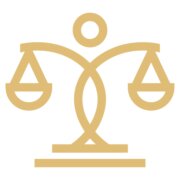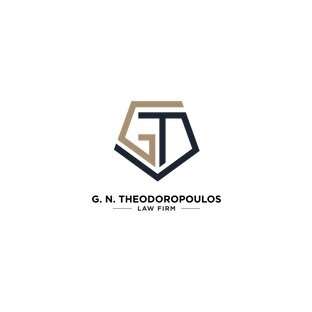Best Creditor Lawyers in Piraeus
Share your needs with us, get contacted by law firms.
Free. Takes 2 min.
List of the best lawyers in Piraeus, Greece
About Creditor Law in Piraeus, Greece
Creditor law in Piraeus, Greece, refers to the legal framework that governs the rights and obligations of creditors and debtors in financial transactions. This area of law involves matters related to loans, debt collection, bankruptcy, and insolvency. Understanding Creditor law is important for individuals and businesses involved in lending and borrowing money in Piraeus.
Why You May Need a Lawyer
There are several situations where seeking legal assistance from a lawyer specializing in Creditor law in Piraeus, Greece, may be necessary. Some common scenarios include:
- Debt collection: If you are owed money and are facing difficulties in collecting it, a lawyer can help navigate the legal process to recover your debt.
- Loan agreements: When entering into loan agreements, it's essential to have a lawyer review the terms and conditions to ensure your rights are protected and the agreement is legally enforceable.
- Bankruptcy and insolvency: If you or your business is facing financial difficulties, a lawyer can provide guidance on bankruptcy and insolvency proceedings, helping you explore options for debt relief or restructuring.
- Debt negotiation: If you are struggling with debt and need to negotiate settlements or repayment plans with creditors, a lawyer can advocate on your behalf and help you achieve the best possible outcome.
- Legal disputes: In the event of a legal dispute involving creditors or debtors, a lawyer can represent your interests in court and help resolve the issue through litigation or alternative dispute resolution methods.
Local Laws Overview
In Piraeus, Greece, the following key aspects of local laws are particularly relevant to Creditor matters:
- The Greek Civil Code: This legal framework sets out the general principles governing contracts, including loan agreements and debt obligations.
- The Greek Bankruptcy Code: This code regulates bankruptcy proceedings and the rights of both debtors and creditors during insolvency situations.
- The Law on Enforcement Proceedings: This law outlines the procedures for enforcing court judgments and recovering debts through the use of enforcement agents.
Frequently Asked Questions
1. Can creditors take legal action to collect unpaid debts?
Yes, creditors can take legal action to collect unpaid debts. However, specific legal procedures must be followed, and it is advisable to consult with a lawyer to navigate the process properly.
2. What are the consequences of bankruptcy for debtors and creditors?
Bankruptcy can have significant implications for both debtors and creditors. Debtors may have their debts discharged or restructured, providing them with financial relief. Creditors, on the other hand, may have their claims satisfied to the extent possible, but not all debts may be fully recovered.
3. Are there any alternatives to bankruptcy for debtors facing financial difficulties?
Yes, there are alternatives to bankruptcy in Piraeus, Greece. Debtors may explore options such as debt negotiation, debt consolidation, or entering into repayment plans with creditors to avoid the severe consequences of bankruptcy. Consulting with a lawyer can help determine the best course of action.
4. What remedies are available to creditors for debt recovery?
Creditors have various remedies for debt recovery, including filing lawsuits, obtaining judgments, initiating enforcement proceedings, seizing assets, or pursuing garnishment of wages or bank accounts. The specific remedy will depend on the circumstances and the rights granted by applicable laws.
5. How can I find out if someone I am lending money to has existing debts or financial difficulties?
Before lending money, it is advisable to conduct due diligence. Working with a lawyer and utilizing resources such as credit reports, public registers, and debt collection agencies can provide insights into a person's or company's financial situation, past debts, and potential risks associated with lending.
Additional Resources
For further information and assistance on Creditor matters in Piraeus, Greece, the following resources can be helpful:
- Piraeus Bar Association (https://www.dsn.gr/): Contact the local bar association for a list of qualified lawyers specializing in Creditor law in Piraeus.
- Greek Ministry of Justice and Human Rights (https://www.justice.gov.gr/): The official website provides legal information and resources related to Greek law.
- Hellenic Society of Bankruptcy and Insolvency Law (http://insolvencylaw.gr/): This professional organization offers insights and resources on bankruptcy and insolvency law in Greece.
Next Steps
If you require legal assistance in matters pertaining to Creditor law in Piraeus, Greece, it is recommended to take the following steps:
- Identify your specific legal issue related to Creditor.
- Research and compile relevant documents and information regarding your case.
- Contact the Piraeus Bar Association or explore reputable law firms specializing in Creditor law in Piraeus.
- Schedule a consultation with a lawyer experienced in Creditor matters to discuss your situation and seek professional advice.
- Based on the advice received, decide on the best course of action and proceed accordingly.
Lawzana helps you find the best lawyers and law firms in Piraeus through a curated and pre-screened list of qualified legal professionals. Our platform offers rankings and detailed profiles of attorneys and law firms, allowing you to compare based on practice areas, including Creditor, experience, and client feedback.
Each profile includes a description of the firm's areas of practice, client reviews, team members and partners, year of establishment, spoken languages, office locations, contact information, social media presence, and any published articles or resources. Most firms on our platform speak English and are experienced in both local and international legal matters.
Get a quote from top-rated law firms in Piraeus, Greece — quickly, securely, and without unnecessary hassle.
Disclaimer:
The information provided on this page is for general informational purposes only and does not constitute legal advice. While we strive to ensure the accuracy and relevance of the content, legal information may change over time, and interpretations of the law can vary. You should always consult with a qualified legal professional for advice specific to your situation.
We disclaim all liability for actions taken or not taken based on the content of this page. If you believe any information is incorrect or outdated, please contact us, and we will review and update it where appropriate.










